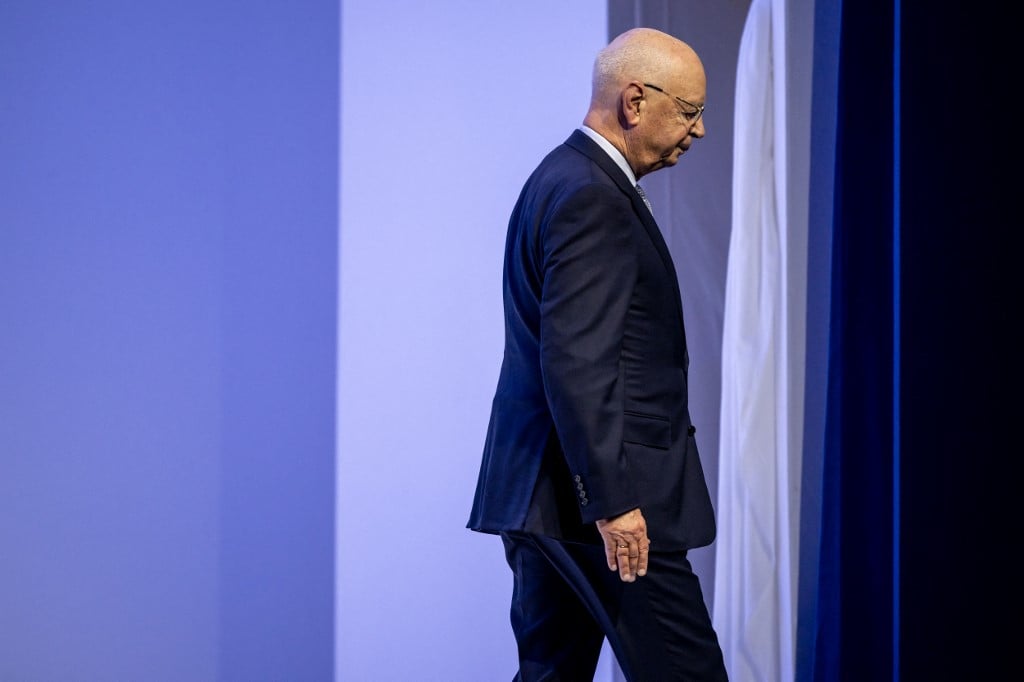The last three years have seen a perfect storm of adverse economic winds across the globe. The global pandemic, supply chain disruptions and economic uncertainty have added to rising political tensions to present a gloomy economic picture.
Some analysts are concerned that the result of all these could be a disintegration of the delicate post-Cold War political and economic settlement that has seen incomes and living standards rise and millions lifted out of poverty over the last three decades.
Panellists on the final day of the World Economic Forum’s annual meetings at Davos said lot will depend on how countries, multilateral institutors and countries respond to these challenges.
A session brought together experts and policymakers to assess these challenges and to reflect on how the rules-based order can be consolidated and improved so it is more inclusive and responsive to the growing crises of inequality, climate change and the threat of economic decoupling.
Kristalina Georgieva, managing director of the International Monetary Fund; Christine Lagarde, president of the European Central Bank; Bruno Le Maire, France’s minister of economy and finance; Kuroda Haruhiko, governor of the Bank of Japan; and Lawrence Summers of the Harvard Kennedy School of Government.
Despite the difficulties of the last year, there was cautious optimism among the panelists. Kristalina Georgieva pointed out that global headline inflation has receded; China is expected to grow at a higher rate following the reversal of its zero-Covid policies; and labour markets remain robust.
However, she warned that there are significant uncertainties and it is important to be realistic about the prospects of the global economy, observing that “how we handle the security of supply chains will matter tremendously”.
This view was shared by Christine Lagarde, who added that China’s return to high growth might impact demand for and prices of crude oil and exert some inflationary pressures in the global economy.
Larry Summers cautioned that central banks must not loosen their fiscal policies but continue to focus on price stability. Otherwise, he said, there is a possibility of resurgence in inflation, which will once again disrupt the global economy.
There is a direct link between economic and political instability and continuing uncertainty might open the way for hyper-populism and more social turmoil.
Efforts must be made to bring in those left behind in poor countries as well as people living in less prosperous parts of the developed world.
“Global integration must never be a primary cause of local disintegration,” he warned.
Kuroda Haruhiko expressed optimism that the digital and green energy transition will power global growth and bring with them a socially responsible paradigm.
Looking towards the future, Bruno Le Maire hoped that there would be an era of cooperation rather than fragmentation, competition rather than trade wars and continued engagement with China, rather than an attempt to exclude it.
He argued that “decarbonisation is the biggest challenge that we have to face, which will also help us to reconcile climate action with growth”.
On these and all of the major concerns the world must confront, the panel was in agreement that there should be robust multilateralism and further efforts to ensure that all countries, including those in the developing world, are supported to succeed.
Want to continue reading? Subscribe today.
You've read all your free articles for this month! Subscribe now to enjoy full access to our content.
Digital Monthly
£8.00 / month
Receive full unlimited access to our articles, opinions, podcasts and more.
Digital Yearly
£70.00 / year
Our best value offer - save £26 and gain access to all of our digital content for an entire year!
 Sign in with Google
Sign in with Google 



